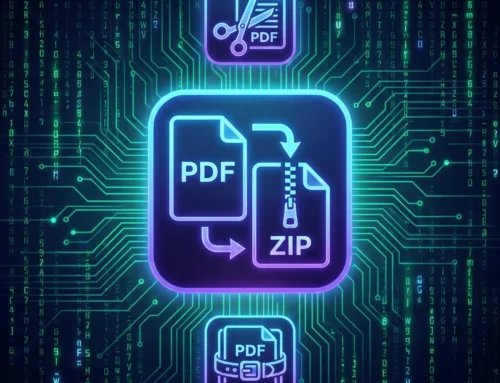
Approx. read time: 5 min.
Post: Navigating the Risks: TikTok’s Ban in the USA and Canada Amid Espionage Concerns
TikTok: Scrutiny and Bans in the USA and Canada Amid Espionage Concerns
TikTok, a highly popular social media platform known for its short-form videos, has come under intense scrutiny in the United States and Canada. Both countries have raised alarms about the potential national security risks associated with the app, leading to significant actions, including bans on its use on government devices. The central concern revolves around the possibility of data exploitation by the Chinese government through ByteDance, TikTok’s parent company.
U.S. and Canadian Government Actions
In the United States, the debate over TikTok has culminated in a ban on the app on government devices. This move, backed by both major political parties, reflects deep-seated concerns about data privacy and national security. Legislators worry that ByteDance could be compelled to share sensitive user data with the Chinese government under China’s national intelligence laws, potentially compromising the privacy of American citizens and the security of state secrets.
Similarly, Canada has taken decisive action by banning TikTok on all government-issued mobile devices. Canadian officials have voiced strong concerns about the app’s potential to compromise data security and privacy. They argue that the app could be leveraged to gather extensive personal information, which could then be used for espionage or other malicious activities.
Concerns Over Chinese Government Espionage
The core of the apprehension lies in the fear that TikTok could serve as a tool for the Chinese government to conduct espionage. Experts warn that data collected from users—ranging from their personal interests and social network contacts to precise location data—could be exploited. This is especially troubling given TikTok’s widespread popularity among minors and young adults, who may not fully understand the implications of sharing their data online.
The potential for data misuse is significant. For example, the Chinese government could theoretically use the data to map social networks, understand public sentiment, and even influence foreign political processes. The vast troves of data collected could provide insights into the behavior and preferences of individuals and groups, which could be used to craft targeted propaganda or disinformation campaigns.
Long-Term Implications of Data Collection
The long-term implications of data collection by TikTok are profound. Imagine a child who starts using TikTok at a young age and continues to use it throughout their teenage years and into adulthood. Over time, TikTok could accumulate a vast amount of data about this individual, including their interests, habits, preferences, and social interactions.
Example Scenario: Career Manipulation
Consider the scenario where this individual enters the job market. Detailed personality profiles generated from years of data collection could be used to influence or manipulate career opportunities. For instance, companies might use insights from these profiles to assess an individual’s susceptibility to stress, resilience, or other personality traits, potentially impacting hiring decisions. This could lead to a future where job applicants are evaluated based not only on their qualifications and interviews but also on an extensive analysis of their online behavior.
Example Scenario: Social Engineering
In another scenario, long-term data collection could facilitate highly targeted social engineering attacks. By understanding a person’s weaknesses, fears, or past experiences, malicious actors could craft sophisticated phishing attacks tailored to the individual. These attacks could be designed to exploit specific vulnerabilities, making them more likely to succeed. For example, if an individual frequently expresses concerns about financial stability, a phishing email posing as a lucrative job offer could be particularly effective.
Government and Public Response
In response to these concerns, both governments and private citizens are becoming increasingly cautious about the use of TikTok. Public advisories often recommend limiting the app’s use among younger demographics and highlight the importance of safeguarding personal information. Legislative measures are being implemented to protect sensitive data and prevent potential exploitation.
For instance, some schools and educational institutions have advised students and staff to be mindful of the information they share on TikTok. Parents are encouraged to discuss online safety with their children and monitor their social media activity. Meanwhile, tech-savvy individuals are turning to privacy-focused apps and services to reduce their digital footprint.
The Broader Context: Geopolitical Tensions and Digital Privacy
The scrutiny of TikTok is part of a broader context of geopolitical tensions and growing concerns over digital privacy. As relations between Western countries and China become increasingly strained, the control and flow of data have become critical issues. Governments are grappling with the challenge of balancing technological innovation with national security and privacy protections.
The TikTok controversy also highlights the complexities of global data governance. While the internet is a global network, data privacy laws and regulations vary significantly between countries. This disparity creates challenges for regulating apps like TikTok, which operate across multiple jurisdictions.
Conclusion
The ongoing debate around TikTok underscores the intricate and evolving nature of digital privacy and national security in the modern age. As technology continues to advance, so too will the challenges associated with safeguarding personal data against potential exploitation. Users are encouraged to stay informed about the apps they use and to consider the long-term implications of their online activities.
In the meantime, governments and regulatory bodies must continue to scrutinize and regulate digital platforms to protect national security and individual privacy. The actions taken against TikTok in the United States and Canada may serve as a precedent for how other countries address similar concerns in the future. As this issue unfolds, it remains crucial for all stakeholders to engage in open and informed discussions about the balance between technological innovation, privacy, and security.
What can the U.S. learn from India’s TikTok ban?
Related Videos:
Related Posts:
Intelligence Chief Warns Canadians That China Can Use TikTok to Spy on Them
Securing the Virtual Playground: Addressing the Minecraft Exploit on Xbox
US-China Tensions Rise TikTok Ban, Mnuchin’s Bid, US-China Strife
Reunited Twins: A TikTok Miracle Unveils Georgia’s Dark History of Illegal Adoptions










